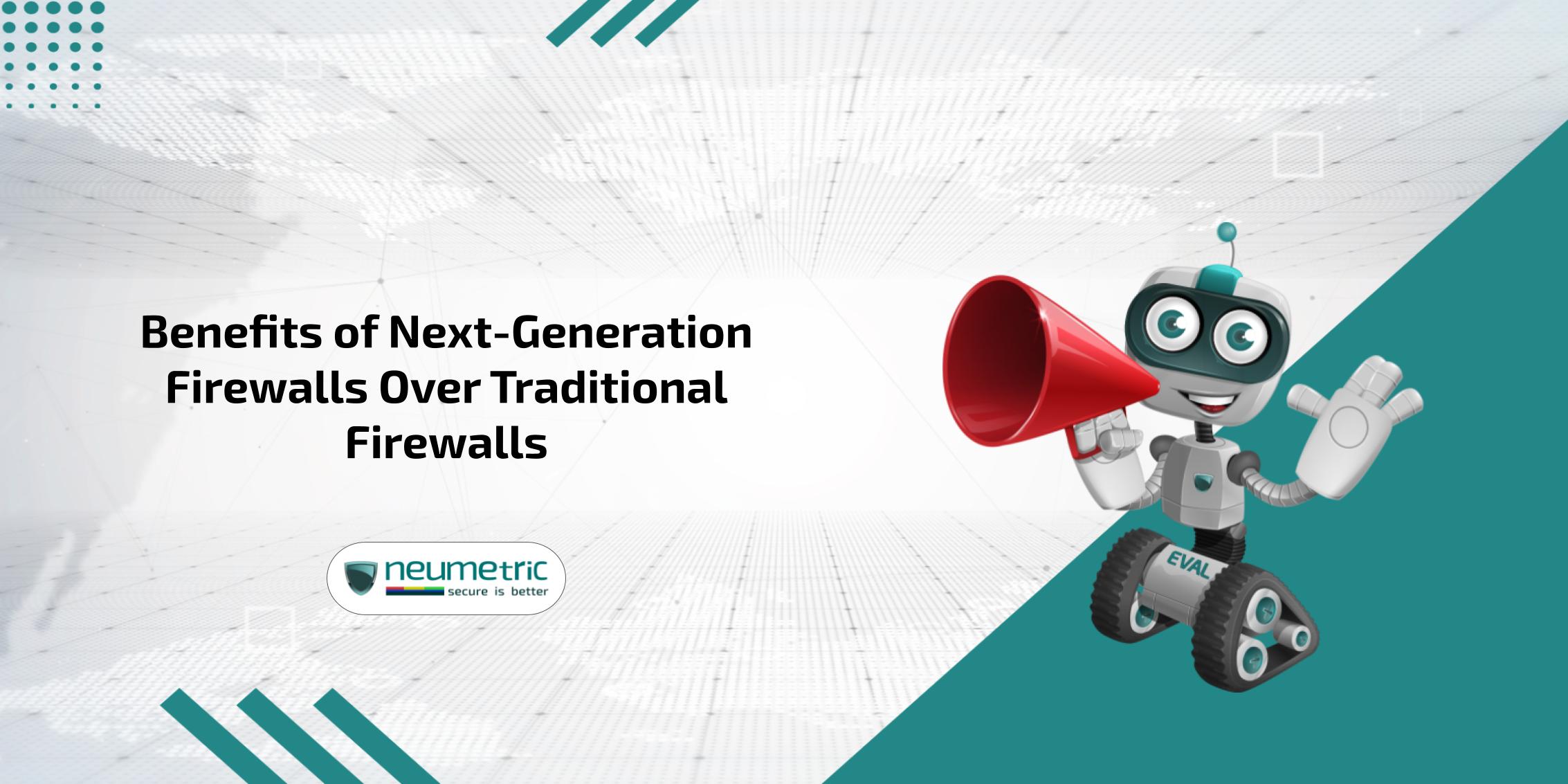Table of Contents
ToggleIntroduction
In the ever-evolving landscape of cybersecurity, the role of firewalls has long been a cornerstone in protecting networks & systems from malicious threats. Traditional firewalls have served as a crucial line of defense, filtering & controlling network traffic based on predefined rules & policies. However, as cyber threats become more sophisticated & the attack surface expands, traditional firewalls are increasingly challenged to keep up with the growing complexities of modern networks. Ng firewalls are a game-changing technology that promises to revolutionize network security by combining advanced threat detection capabilities with comprehensive visibility & control.
Understanding the Limitations of Traditional Firewalls
The Changing Threat Landscape
Traditional firewalls, while effective at enforcing basic access control policies, were primarily designed to operate at the network layer, filtering traffic based on source & destination IP addresses, ports & protocols. However, in today’s connected world, where applications & users span multiple networks & devices, this approach falls short. Cyber threats have become increasingly sophisticated, employing techniques such as encrypted traffic, advanced malware & targeted attacks that can easily bypass traditional firewall defenses.
Moreover, the rise of cloud computing, remote work & the Internet of Things [IoT] has further expanded the attack surface, making it challenging for traditional firewalls to maintain visibility & control over the entirety of an organization’s network infrastructure.
The Need for Advanced Threat Detection
As cyber threats continue to evolve, the need for more advanced threat detection capabilities has become paramount. Traditional firewalls, with their limited ability to inspect & analyze network traffic, often fail to identify & mitigate modern threats effectively. Sophisticated attacks, such as advanced persistent threats & zero-day exploits, can easily evade traditional firewall defenses, leaving organizations vulnerable to data breaches, system compromises & potentially devastating consequences.
To address these challenges, organizations require a more comprehensive & intelligent security solution that can not only enforce basic access control policies but also provide deep packet inspection, advanced threat detection & real-time analysis of network traffic.
The Rise of NG Firewalls
Capabilities & Features of NG Firewalls
NG Firewalls incorporate a range of advanced features & capabilities designed to combat modern cyber threats more effectively. At the core of NG Firewalls is their ability to perform deep packet inspection & application-level filtering. By inspecting network traffic at the application layer, NG Firewalls can identify & control specific applications & services, regardless of the ports or protocols used. This capability is particularly valuable in today’s dynamic & constantly evolving application landscape, where traditional port-based filtering methods often fall short. It represents a significant evolution in firewall technology, offering a comprehensive & integrated approach to network security.
Additionally, NG Firewalls leverage advanced threat detection techniques, such as intrusion prevention systems, sandboxing & reputation-based filtering, to identify & mitigate known & unknown threats in real-time. These features enable NG Firewalls to detect & block malware, exploits & other malicious activities that may evade traditional security measures.
Integrated Security Services
One of the key advantages of NG Firewalls is their ability to integrate various security services into a single, centralized platform. These integrated services can include:
- URL filtering: NG Firewalls can enforce URL filtering policies, allowing or blocking access to specific websites based on predefined categories or reputations.
- SSL/TLS inspection: With the increasing prevalence of encrypted traffic, NG Firewalls can decrypt & inspect secure connections, helping to identify & mitigate threats hidden within encrypted traffic streams.
- User & application awareness: NG Firewalls can identify & enforce policies based on user identities & specific applications, enabling granular control over network access & usage.
- Network segmentation & micro-segmentation: NG Firewalls support the creation of secure network segments or micro-segments, isolating critical assets & limiting the potential spread of threats within the network.
By consolidating these security services into a single platform, NG Firewalls simplify security management, reduce administrative overhead & provide a centralized point of control & visibility over the entire network infrastructure.
Key Benefits of Next-Generation Firewalls
Enhanced Threat Detection & Mitigation
One of the primary benefits of NG Firewalls is their advanced threat detection & mitigation capabilities. Traditional firewalls often struggle to identify & respond to modern cyber threats, such as advanced malware, zero-day exploits & targeted attacks. NG Firewalls, on the other hand, leverage a combination of technologies, including intrusion prevention system sandboxing & reputation-based filtering, to effectively detect & mitigate these threats in real-time.
By inspecting network traffic at the application layer & analyzing content & behavior patterns, NG Firewalls can identify & block malicious activities that would otherwise go undetected by traditional firewalls. This enhanced threat detection capability provides organizations with a proactive defense against emerging threats, reducing the risk of data breaches, system compromises & other security incidents.
Comprehensive Visibility & Control
NG Firewalls offer unparalleled visibility & control over network traffic & applications. Unlike traditional firewalls, which primarily focus on IP addresses, ports & protocols, NG Firewalls can identify & control specific applications, users & content. This level of granular control enables organizations to implement more precise security policies, ensuring that only authorized applications & users have access to specific resources.
Furthermore, NG Firewalls provide valuable insights into network activities, including detailed logs & reports on application usage, user behavior & potential threats. This comprehensive visibility empowers organizations to make informed
Centralized Management & Integration
NG Firewalls often come with centralized management consoles, allowing organizations to manage & configure multiple firewalls from a single interface. This centralized approach streamlines security operations, reduces administrative overhead & ensures consistent policy enforcement across the entire network infrastructure.
Additionally, many NGFW solutions integrate with other security technologies, such as security information & event management systems, endpoint protection platforms & cloud security solutions. This integration enables a more cohesive & coordinated security strategy, facilitating the sharing of threat intelligence & enabling automated response & remediation actions.
Scalability & Flexibility
As organizations continue to adopt cloud computing, remote work & Internet of Things [IoT] technologies, their network infrastructure becomes increasingly complex & dynamic. NG Firewalls are designed to address this complexity, offering scalable & flexible solutions that can adapt to changing network requirements.
Many NGFW solutions support virtualization & cloud deployments, allowing organizations to easily scale their security infrastructure as needed. Additionally, NG Firewalls often provide flexible licensing models, enabling organizations to add or remove security services as their needs evolve, without the need for significant hardware investments or infrastructure overhauls.
Challenges & Considerations
Complexity & Deployment Challenges
While NG Firewalls offer numerous benefits, their advanced capabilities & features can also introduce greater complexity in terms of deployment, configuration & management. Implementing an NGFW solution often requires specialized expertise & careful planning to ensure proper integration with existing network infrastructure & security policies.
Additionally, the increased processing requirements of NG Firewalls, particularly for resource-intensive tasks such as deep packet inspection & SSL/TLS inspection, may necessitate more powerful hardware or the adoption of virtualized or cloud-based solutions to ensure optimal performance.
Performance & Throughput Considerations
The advanced threat detection & analysis capabilities of NG Firewalls can potentially impact network performance & throughput. As NGFWs inspect & analyze network traffic at a deeper level, they may introduce additional latency or processing overhead, particularly in high-traffic environments or when handling large volumes of encrypted traffic.
Organizations must carefully evaluate their network requirements, traffic patterns & performance expectations to ensure that the chosen NGFW solution can meet their needs without compromising network performance or user experience.
Ongoing Management & Maintenance
Implementing an NGFW is not a one-time effort; it requires ongoing management & maintenance to ensure that the solution remains effective & up-to-date. Security policies, threat signatures & software updates must be regularly reviewed & applied to maintain optimal protection against evolving cyber threats.
Additionally, organizations must establish processes for monitoring, logging & analyzing NGFW events & alerts to identify & respond to potential security incidents promptly. This ongoing management & maintenance effort may require dedicated resources & expertise, which should be factored into the overall cost & resource planning.
Integration with Broader Security Strategies
While NG Firewalls offer powerful security capabilities, they should not be viewed as a standalone solution. To achieve true defense-in-depth [DiD], organizations must integrate NGFWs into their broader security strategies & architectures.
Coordinating with Endpoint Protection & Threat Intelligence
NG Firewalls can be highly effective when integrated with endpoint protection solutions, such as antivirus software, host-based intrusion prevention systems & endpoint detection & response tools. This integration enables a coordinated defense, where threats detected at the endpoint can be communicated to the NGFW for network-level mitigation & vice versa.
Additionally, incorporating threat intelligence feeds & security information & event management systems can enhance the effectiveness of NGFWs. By leveraging up-to-date threat intelligence, NGFWs can be configured to detect & block emerging threats more proactively, while SIEM integration enables centralized monitoring, analysis & correlation of security events across the entire infrastructure.
Aligning with Security Policies & Compliance Requirements
The implementation of an NGFW solution should align with an organization’s overall security policies & compliance requirements. NG Firewalls can be configured to enforce granular access controls, content filtering & data protection policies, ensuring adherence to industry regulations & internal security standards.
Furthermore, NG Firewalls can play a crucial role in supporting compliance efforts by providing detailed logging & reporting capabilities, which can be leveraged for audit purposes & demonstrating compliance with relevant regulations, such as the General Data Protection Regulation [GDPR], the Health Insurance Portability & Accountability Act [HIPAA] or the Payment Card Industry Data Security Standard [PCI DSS].
Embracing Cloud & Hybrid Deployments
As organizations continue to adopt cloud computing & hybrid infrastructure models, NG Firewalls must evolve to support these emerging architectures. Many NGFW vendors now offer cloud-based or virtualized solutions, allowing organizations to extend their security perimeter to cloud environments & protect their hybrid networks seamlessly.
Cloud-based NGFWs can provide consistent security policies & visibility across on-premises & cloud resources, ensuring that traffic between different environments is inspected & secured. Additionally, these solutions often offer flexible licensing models & scalability, enabling organizations to adapt their security infrastructure to changing business needs & cloud adoption patterns.
Conclusion
In the ever-evolving cybersecurity landscape, where threats are becoming increasingly sophisticated & the attack surface continues to expand, traditional firewalls are struggling to keep up. Next-Generation Firewalls have emerged as a game-changing solution, offering advanced threat detection & mitigation capabilities, comprehensive visibility & control & seamless integration with other security technologies.
By combining deep packet inspection, application-level control & advanced threat detection mechanisms, NG Firewalls provide organizations with a proactive & intelligent defense against modern cyber threats. The ability to identify & control specific applications, users & content, coupled with centralized management & flexible deployment options, empowers organizations to implement precise security policies & adapt to changing business requirements.
While the adoption of NG Firewalls presents challenges, such as complexity, performance considerations & ongoing management efforts, the benefits they offer in terms of enhanced security, visibility & integration make them an essential component of a comprehensive defense-in-depth [DiD] strategy.
As organizations continue to embrace digital transformation, cloud computing & emerging technologies, the role of NGFWs will become even more critical. By integrating NGFWs into broader security architectures, aligning with security policies & compliance requirements & leveraging threat intelligence & automation, organizations can stay ahead of the curve & fortify their defenses against the ever-evolving threat landscape.
Ultimately, the implementation of Next-Generation Firewalls represents a strategic investment in cybersecurity, enabling organizations to safeguard their critical assets, maintain business continuity & foster a secure & resilient digital environment. Embracing this technology is not merely a reactive measure but a proactive step towards securing the future of digital operations & protecting against the myriad of threats that lurk in the digital realm.
Key Takeaways
- Next-Generation Firewalls offer advanced threat detection & mitigation capabilities, application-level control & integrated security services to address the limitations of traditional firewalls in today’s complex threat landscape.
- NG Firewalls provide comprehensive visibility & control over network traffic, applications & user activities, enabling organizations to implement precise security policies & gain valuable insights into their security posture.
- Key benefits of NGFWs include enhanced threat detection, centralized management, scalability & integration with other security technologies, such as endpoint protection & threat intelligence platforms.
- Implementing NGFWs requires careful planning, expertise & consideration of factors such as complexity, performance impact & ongoing management & maintenance requirements.
- NGFWs should be integrated into broader security strategies, aligning with security policies, compliance requirements & supporting cloud & hybrid deployments for a comprehensive defense-in-depth approach.
Frequently Asked Questions [FAQ]
What is the difference between a traditional firewall & a next-generation firewall?
Traditional firewalls primarily focus on packet filtering based on IP addresses, ports & protocols, while NGFWs incorporate advanced features such as deep packet inspection, application-level control, intrusion prevention & advanced threat detection capabilities. NGFWs offer more comprehensive & intelligent security solutions tailored for modern cyber threats & network environments.
Can NGFWs completely replace traditional firewalls?
While NGFWs offer significant advantages over traditional firewalls, they are not necessarily a complete replacement. In some scenarios, traditional firewalls may still be suitable for specific use cases or as part of a layered security approach. The decision to adopt NGFWs should be based on an organization’s specific security requirements, risk profile & network architecture
How do NGFWs handle encrypted traffic?
NGFWs often include SSL/TLS inspection capabilities that allow them to decrypt & inspect encrypted traffic for potential threats. This feature is crucial in today’s landscape, where a significant portion of network traffic is encrypted. However, SSL/TLS inspection can introduce performance overhead & may require additional hardware resources or configuration adjustments.
Can NGFWs protect against advanced persistent threats?
NGFWs incorporate various features & technologies, such as sandboxing, reputation-based filtering & advanced threat detection mechanisms, that can help identify & mitigate advanced persistent threats. However, APTs are highly sophisticated & targeted attacks & NGFWs alone may not provide complete protection. A multi-layered security approach, including endpoint protection, threat intelligence & incident response capabilities, is recommended to combat APTs effectively.
How do NGFWs impact network performance & throughput?
The advanced inspection & analysis capabilities of NGFWs can potentially impact network performance & throughput, particularly in high-traffic environments or when handling large volumes of encrypted traffic. Organizations should carefully evaluate their network requirements & performance expectations to ensure that the chosen NGFW solution can meet their needs without compromising user experience or application performance.





